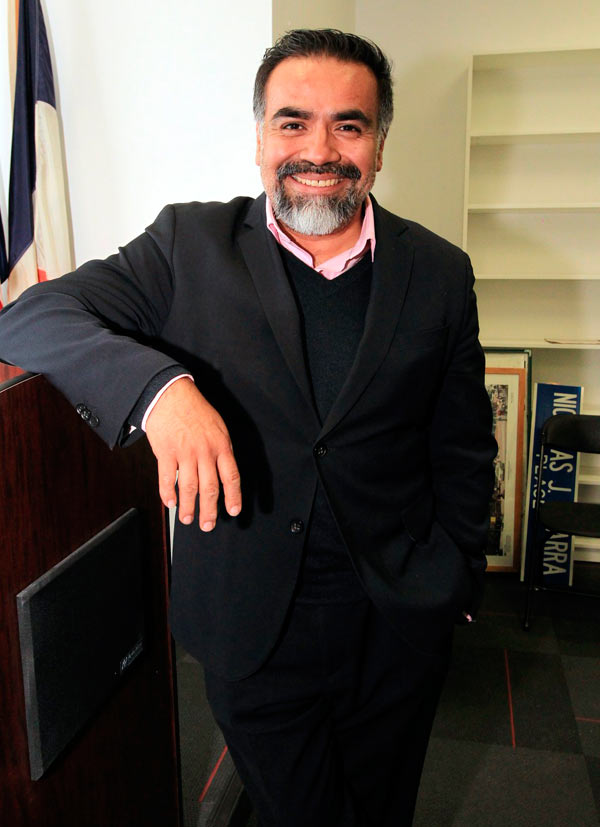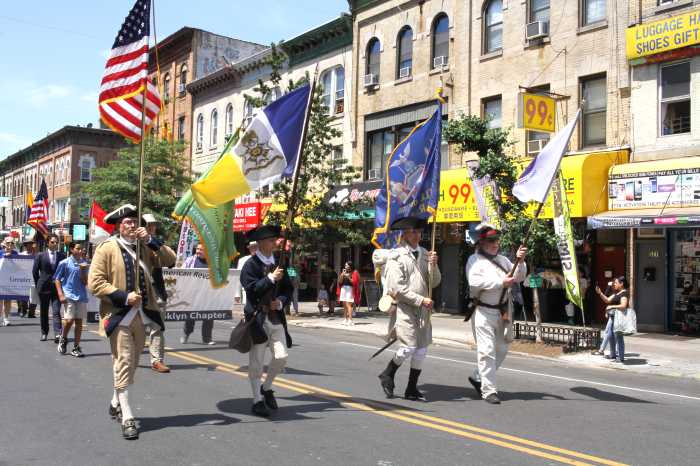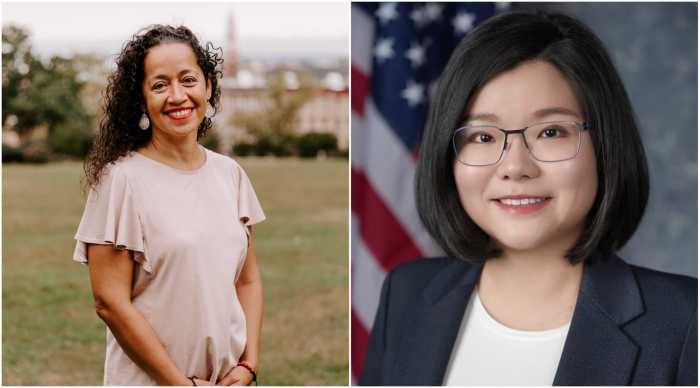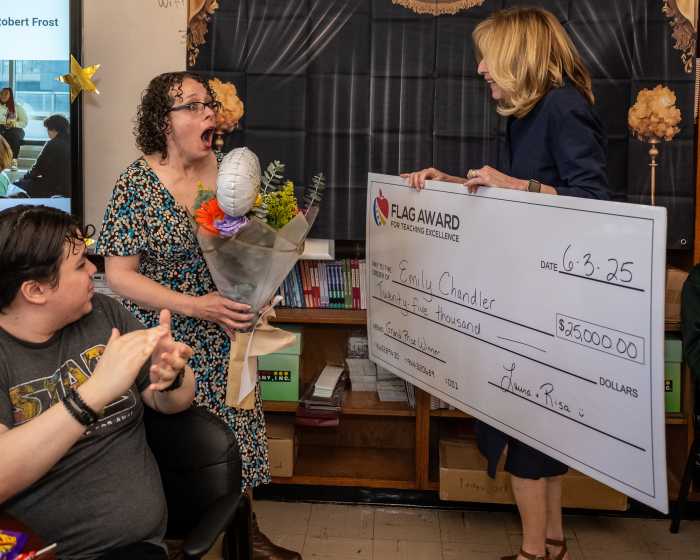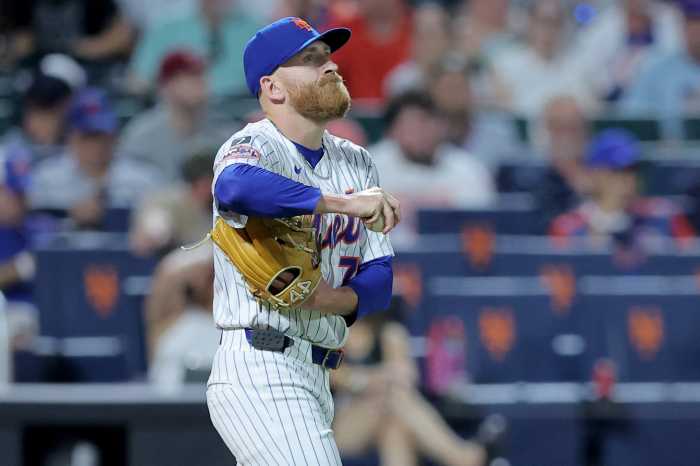Cesar Zuniga took over as the new chairman of Sunset Park’s Community Board 7 earlier this year, after serving on the panel since 2009. Zuniga — a 2014 Assembly candidate who lost the Democratic primary to Sunset Park Assemblyman Felix Ortiz — said he will use his two-year term to get locals more engaged with the board and community concerns, and that he will tell the city to answer to residents directly about the secrecy surrounding the placement of homeless shelters in the neighborhood. The unanimously elected chairman also told us he wants to foster a community-wide conversation about development on the waterfront, and revealed more priorities in our exclusive sitdown.
Julianne McShane: Why did you want to pursue this position?
Cesar Zuniga: It’s kind of the same reason that I ran for Assembly — it just seemed like there are so many needs that this community has that unfortunately have not been addressed. I’m also motivated by the fact that it’s a rapidly transitioning community, and I think it needs and demands leadership on managing this change.
JM: What are some of this community’s unmet needs?
CZ: I think in addition to [school] overcrowding, affordable housing, and economic development, the homeless issue has been a big topic. In this particular context, I’d say the homelessness issue has really resonated because of how the administration has handled the placement of some of these folks and the opening of hotels. I think one of the priorities for me as chair of this community board is to get the agencies to be more accountable in how they engage the community about this.
JM: Does the administration have any plans that you’re aware of to open any more shelters in this district?
CZ: Apparently not — but it’s hard to trust that information.
JM: What could the Department of Homeless Services be doing better?
CZ: Giving us timely information — certainly not 24 hours before something pops up. Part of our role as a community board is to keep people informed, and it always seems to be misinformation, last-minute information, or obfuscation. I want to do a town hall on this and get these officials in front of the community and have them take a little heat.
JM: Do you think Department of Homeless Services Commissioner Steven Banks should come to a community board meeting?
CZ: I do think that, but I’m also a reasonable guy, and he made a somewhat reasonable case that if he comes to this community board, he’s going to be subjected to either going to or turning down all the other community boards.
JM: At the February board meeting you said you want to get locals more involved with the community board — how can you get people involved with tackling some of the concerns you mentioned?
CZ: I want to really go out and do penetrating outreach with community-based organizations and set up some goals. Instead of hanging up 1,000 fliers around the neighborhood, we’re going to get 10–15 new people that someone actually talked to convinced that they should participate [on the community board]. I want to use the committee structure to do more of that work, doing some of that up-front outreach and capacity-building work to get more people — from the mom-and-pop businesses, street vendors, parents from schools — to participate in the public meetings, where there are votes and debates about what’s going to happen.
JM: How does the board balance cultivating economic development in a changing neighborhood like this — specifically I’m thinking of the waterfront and Industry City — and looking out for people who have been here for a long time?
CZ: There’s no question that this community’s going to change, and the waterfront development is going to really change a lot of things, and I think people need to be aware of that, because that has serious implications, particularly on housing. And there are a lot of people in this community who don’t see it coming — not because they don’t care about it, but because they’re not engaged, and there’s no mechanism for them to engage. One of the few powers that the community board has is its approval or disapproval around zoning changes — not to say that they can’t do zoning changes without our approval, but it’s harder to do it. The first step is to get people to come to the table and understand what they’re attempting to do with these zoning changes and have people really be part of the conversation. Do we really want hotels, campuses? Is that a slippery slope towards full residential development, and if it is, is that what we want?
JM: Should the Industry City reps be coming to the board meetings?
CZ: I think they have been, but not as consistently as I would like them to. And I want to put together a task force that will work together with all of the stakeholders: Industry City, the elected officials, some of the other developers who are involved.
JM: Do you have any further political aspirations? Would you run for office again in the future?
CZ: Yeah. I’m not making that a secret. I’m very committed to doing this job now, but I feel like I have some ideas that are viable and informed by work that I’ve done in communities. I don’t have any plans, but I’m not closing the door on that. I would consider an Assembly seat, or Council.


